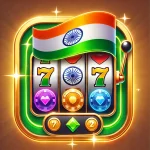Understanding Rummy Bloc: A Complete Guide Rummy Bloc is a fun card game that blends strategic gameplay with aspects of classic rummy. It is typically played with a deck of cards or tiles. Each player in the game, which usually consists of two to four, tries to form legitimate sets and sequences out of their hand.
Becoming the first to combine all of your tiles or cards into legitimate combinations—which can include runs, which are consecutive numbers of the same suit, and groups, which are sets of the same number in different suits—is the goal. For any player hoping to succeed in Rummy Bloc, it is essential to comprehend the fundamental rules & mechanics. Each player starts the game with a set number of tiles or cards, which they must arrange and control as the game progresses. As they take turns drawing from either the discard pile or the central pile, players try to form combinations that are legal while simultaneously watching what their opponents are doing. The delicate balance between creating your own melds and thwarting your opponents’ plans is what gives Rummy Bloc its strategic depth.
Rummy Bloc demands careful planning & strategy in addition to being a game of chance because of its dual emphasis on offense and defense. Early Meld Formation Is Essential for Achievement. Making meld formation a top priority early in the game is one successful strategy.
Players can minimize potential points in the event that the game ends unexpectedly by concentrating on making valid combinations as fast as possible, which will reduce the number of tiles in their hand. Adaptability: The Will to Change Direction. Adaptability is another essential component of strategy. The dynamics of the game can change quickly depending on the tiles that are drawn and discarded as it goes on. The ability to adjust their strategy according to the situation at hand is essential for a successful player.
For example, it might be a good idea to shift your attention and pursue different combinations that are less likely to be interrupted if you observe that an opponent is gathering particular tiles. maintaining a competitive edge. Due to its ability to keep you one step ahead of your rivals, this flexibility frequently makes the difference between winning and losing. In order to succeed in Rummy Bloc, players can create a winning strategy by fusing flexibility with early meld formation. Some tiles or cards in Rummy Bloc may have special meaning; these are known as “power cards.”.
These cards can offer special benefits like improving hand manipulation or upending an opponent’s strategy. You can greatly improve your gameplay by knowing how to use these power cards. Utilizing a power card at the right time can help you win, for instance, if it lets you draw more tiles or trade with an opponent.
Also, it’s critical to understand when to strategically use these power cards. When it comes to the game, timing is crucial; if you use a power card too soon, you could be vulnerable when you need it most. However, if you hang onto it for too long, you might miss out on opportunities. When used strategically, a power card can help you finish your melds & also give your opponents confusion, which causes them to reevaluate their own plans. The ability to identify patterns and sequences in both your own and your opponents’ hands is a basic Rummy Bloc skill.
This entails anticipating the combinations that others might be aiming for in addition to spotting possible melds. For example, you can tell that an opponent is focused on finishing a particular set or sequence if you observe that they regularly discard particular numbers or suits. Through careful observation of these trends, you can decide which tiles to save or throw away. You can also make more intricate melds by honing your sense of pattern.
For instance, you may be able to create multiple runs or sets by carefully placing tiles that are similar in value but belong to different suits at the appropriate times. This increases the number of points you can score and makes it more difficult for your opponents to guess what you’ll do next. One characteristic of proficient Rummy Bloc players is their capacity to see beyond the tiles in their immediate hand and predict potential outcomes. Managing your hands well is essential in Rummy Bloc since it affects your ability to form melds and react to moves made by opponents. Sorting your tiles into possible melds as soon as you get them is a useful strategy.
You can rapidly determine which combinations are feasible and which tiles might be better off thrown away by grouping your hand according to suits or numbers. This arrangement not only facilitates decision-making but also aids in concentration while playing. Knowing when to break up possible melds for greater strategic advantage is another crucial component of hand management. Even though it might seem counterintuitive, there are situations in which throwing away a tile that could finish a meld can keep an opponent from accomplishing their objectives. For example, if you believe your opponent is about to finish a sequence with a particular tile, you can still pursue other combinations by holding onto that tile longer than is necessary to thwart their plans.
In the long term, this measured risk may yield substantial rewards. observing the behavior of opponents. Paying attention to your opponent’s moves is just as crucial in Rummy Bloc as paying attention to your own hand. An understanding of their tactics and goals can be gained by observing how they draw and discard tiles.
An opponent may be concentrating on finishing particular melds if, for instance, they routinely pick up particular suits or numbers. Modifying Your Approach. Early detection of these patterns allows you to modify your approach, either by focusing on less contested tiles or by obstructing their progress. Rummy Bloc’s effects on the mind.
In Rummy Bloc, psychological factors are also an important factor. Tells are subtle indications of a player’s confidence or insecurity regarding their hands that are frequently displayed. For example, it could indicate that an opponent is carefully considering their options or is uncertain of their current strategy if they pause before discarding a tile.
Getting an advantage over competitors. Developing your ability to observe and correctly decipher these cues will give you a competitive advantage that will improve your gameplay in general. A crucial component of Rummy Bloc strategy is determining when to discard a tile and when to keep it. Holding onto extra tiles can clog your hand & impede your progress, while discarding too quickly can give opponents valuable tiles they need to finish their melds.
Players must assess each tile’s potential value for both themselves and their opponents; this requires a balanced approach. Give careful thought to a tile’s usefulness in relation to your hand and your opponents’ when deciding whether to discard it. It might make sense to discard a tile if you have several options for creating melds but it seems less likely to help, particularly if it’s a tile your opponent has been collecting.
On the other hand, if you have a tile that might help your opponent finish their meld but also has value for you later in the game, it might be wiser to hold onto it until you are more sure of its effect. You must practice and be open to learning from every game you play if you want to improve your Rummy Bloc skills. Examining your own and more seasoned players’ previous games is a good method to improve your gameplay.
You can learn new tactics and approaches that you may not have previously thought of by seeing how other people handle different circumstances. Think about playing with various player groups as well, as they might have different tactics and styles. Your grasp of the game’s dynamics will grow as a result of this exposure, which will also push you to modify & improve your own strategy. Following games, having conversations about tactics can also be helpful; exchanging ideas with other players helps players better grasp the nuances of Rummy Bloc.
Finally, never undervalue the importance of endurance and patience. It takes time to become proficient in Rummy Bloc; every game offers fresh difficulties and educational opportunities. You can progressively acquire the abilities required to become an accomplished player in this captivating card game by keeping an optimistic outlook and being receptive to criticism.




